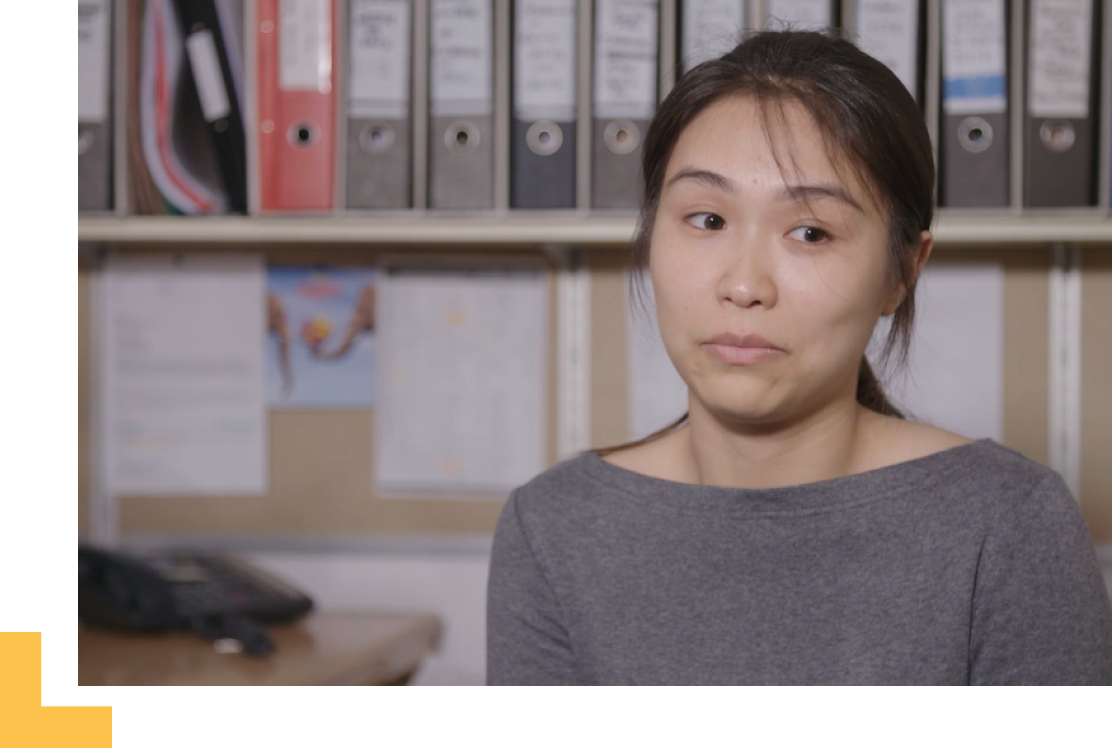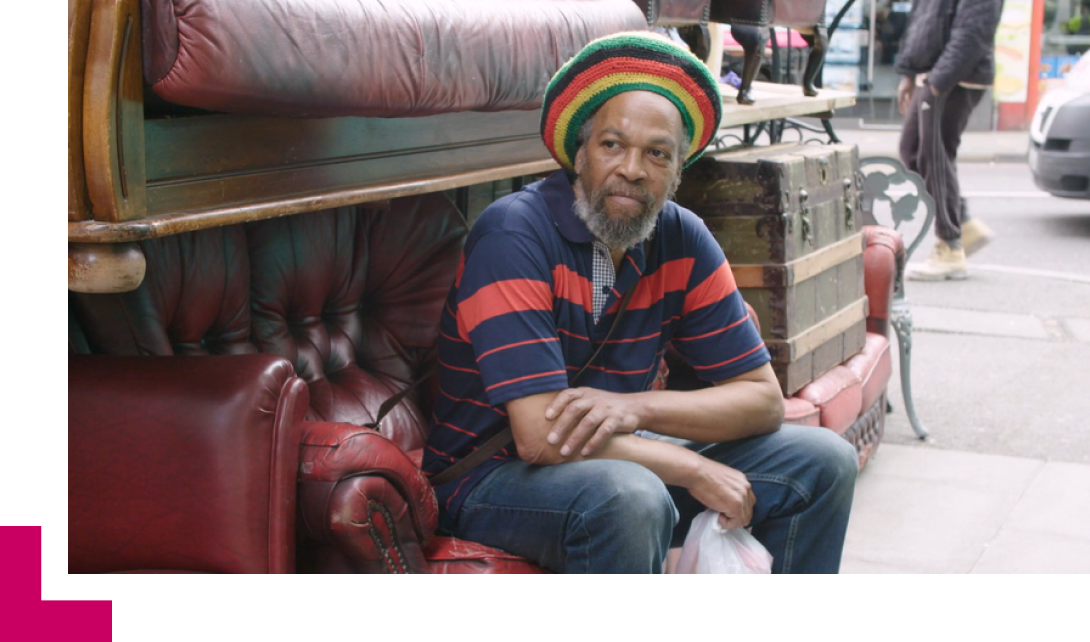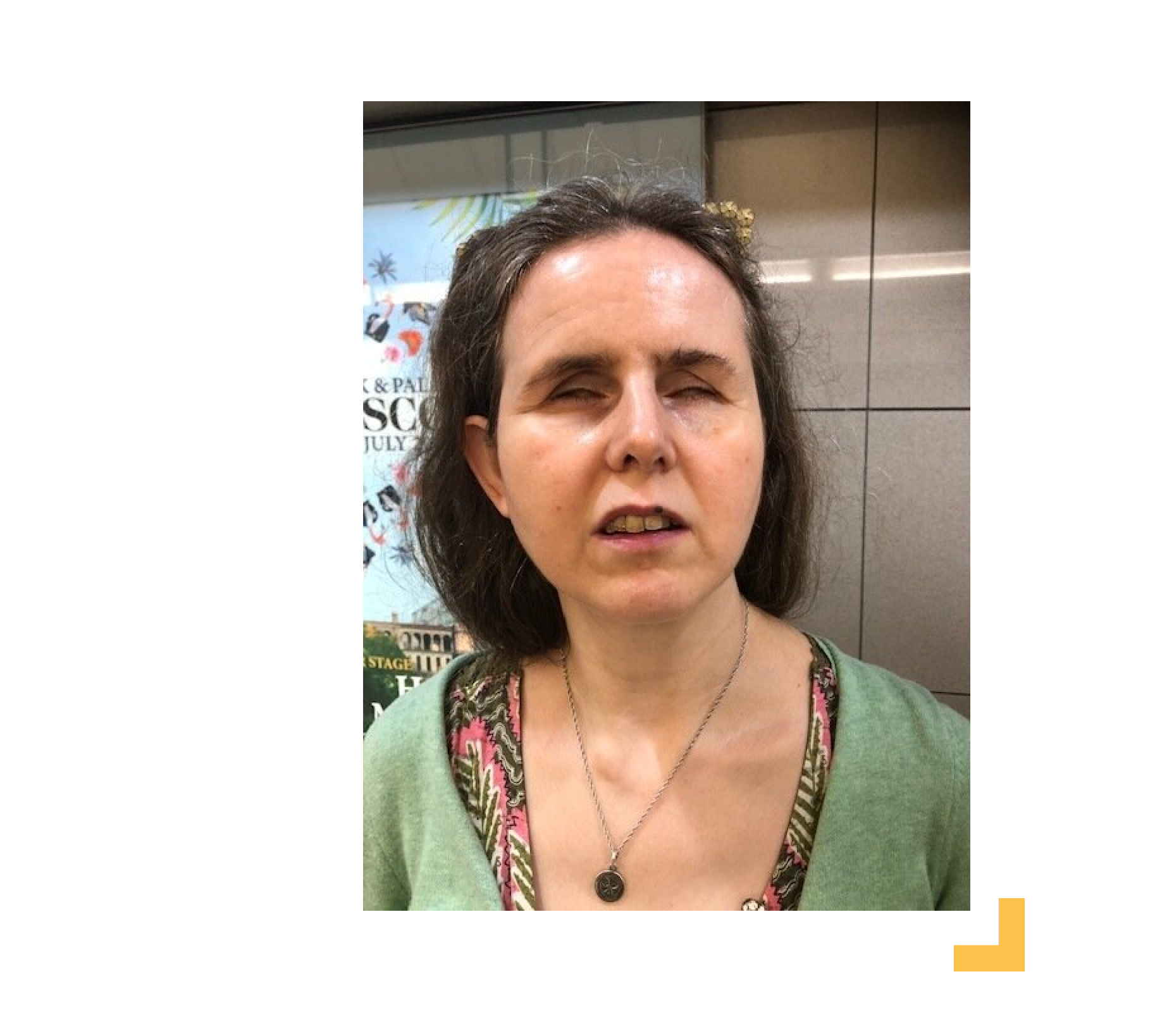– Client Stories
Speaking from experience

What does justice feel like?
Sometimes the simplest things can become big problems and feel overwhelming.
These people have all been there. They have taken action and sought help. Law Centres were there for them when they were in trouble, and helped them find a way through.
Here they share their lived experience and the difference that Law Centres' helped make to their lives.
Salma's story
Salma came to the UK when she married a British husband. The marriage turned sour when her husband started being abusive towards her. Salma took their young son and fled home. However, separating from her husband threatened Salma’s right to live in the UK.
“I did not have any family, I did not have any support from anyone else, the Law Centre was the only place I could come. I had just a week until deportation. If the Law Centre hadn’t helped me, I would have been sent back to Pakistan. Because I was fleeing domestic violence, the community where I belong wouldn’t accept me, because it’s a matter of honour and a matter of shame to get separated or divorced. I’m even scared that they might have killed me in the name of honour. I have a three year old son. If it wasn’t for the Law Centre I might not even be alive today”.
“I was fleeing domestic violence, so I had nothing with me when I left my home.”

Delbert's story
“If it weren’t for the Law Centre, I wouldn’t be sitting here.”

Delbert has been living in the UK since 1969, when he came here aged 13. At the time, as a Commonwealth citizen, he had the right to live in the UK. Like many of the Windrush generation, he was never given documents to prove his right, and he had no idea he would ever need to do so. However, UK immigration rules have changed many times since, restricting the rights of Commonwealth citizens in the UK more and more.
It was an unrelated issue that brought the government’s Hostile Environment policy to Delbert. In 2011, he complained about the state of the home he was renting, and his landlord evicted him. He turned to the council for help to be housed, but they asked him to prove his right to live in the UK. That was the start of a four-year ordeal, in which he was repeatedly made homeless. His local Law Centre helped him challenge the Home Office and secure his right to live in the UK and to get housed.
“All of a sudden you got no papers, no one knows who you are. I can’t explain, it’s so emotional, what I’ve been through because of Windrush. The nights I spent on the streets. Homelessness, it’s a wicked thing, it’s a wicked thing… If it weren’t for the Law Centre, I wouldn’t be sitting here.”
Lorraine's story
Lorraine, a young mother from Derry, was devastated when she was told she had Motor Neurone Disease (MND), a degenerative and terminal illness.
This was just the start of her ordeal. After medically retiring, she was still required to search for work for months in order to get Universal Credit, while waiting for a medical assessment to get Personal Independence Payment (PIP). Instead of enjoying the little time she had left with her loved ones, she was trapped in bureaucracy.
The government allows terminally ill people a ‘fast track’ to getting benefits if they can prove that they are ‘reasonably’ expected to die within six months. Over time, this compassionate rule became a hurdle when Lorraine’s doctors could not guarantee that she had less than six months to live. Her Law Centre helped her challenge the policy in court. She was awarded compensation for her distress and eventually the terminal illness benefits rules were changed.
“The process of seeking to obtain benefits has continually exacerbated my stress levels and anxiety. I have had to constantly fight to get the same entitlement to benefits as other people who are terminally ill… I wouldn’t wish my experience on anyone. I believe the system has failed me and the approach to dealing with people who have a terminal illness needs urgently addressing. I have accepted my path in life now but please don’t put anyone else through it.”
Lorraine passed away in July 2022, after fighting bravely not just for herself but for others.
“The system has failed me… please don’t put anyone else through it”
Talia's story
“I’ve never been in this position before. I had no idea what to do.”
Talia is a single mum from South London, struggling to support herself and her two children on benefits. When their landlord tried to evict them through no fault of their own, Talia was blindsided. At court, she met Law Centre lawyers who were able to get the eviction thrown out.
Then Talia found out that, despite being on benefits, she was not eligible for legal aid to resolve the remaining problems with her landlord. The government wanted her to use the little savings that she had for her children’s education to pay for lawyers. The Law Centre continued to help her, for free (pro bono).
“I’ve never been in this position before. I had no idea what to do. [Solicitors] Jeinsen and Florence took me through the eviction process step by step. Without them I would have lost my home. Actually, I would have lost everything… I really appreciate your help. I would have been completely stuck without you. It was really great having someone explain things to me in a way I could understand. It made what was a nightmare actually bearable.”
Auriol's story
Auriol lives in Bristol. She is registered blind and partially deaf. Normally, she gets on with her life just fine, using the help available to people with disabilities.
However, during the pandemic, her local Sainsbury's supermarket suspended the Assisted Shopping service she depended on, because of social distancing. For months in lockdown, she was forced to ask for favours from volunteers to help her get her groceries.
Bristol Law Centre supported Auriol to sue Sainsbury's for discrimination. She won, and the judge agreed that the supermarket chain did not fulfil its duty to make ‘reasonable adjustments’ so she could continue using the store without finding her own assistance.
“Bringing a civil case, such as this one, in the small claims' court was stressful, daunting and hard work, particularly when faced with a defendant so much larger and more powerful than myself. I would not have been able to bring this case without the support of Bristol Law Centre, and I thank them most sincerely for this assistance. I am now on good terms with the [supermarket branch].”
Facing a company “so much larger and more powerful” than myself and winning

Help us support more people like these
More and more people contact Law Centres for assistance. Everyday problems flare up and threaten their homes, livelihoods or loved ones. See how you can get involved and help us be there for them.
Stay in the loop
Sign up for our monthly newsletter to stay in the loop